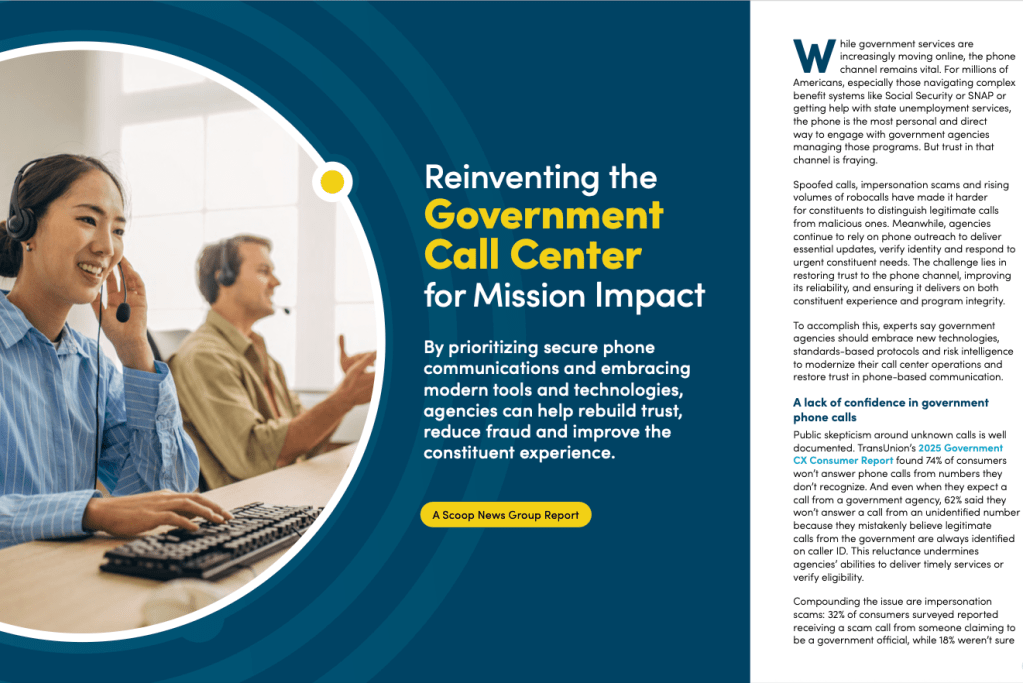- Sponsored
- Insights
Why the phone still matters: Modernizing government call centers

As digital self-service tools expand across government programs, a new report produced by Scoop News Group for TransUnion highlights a critical yet often overlooked fact: For millions of Americans, the telephone remains the most direct and personal way to interact with government agencies. But amid rising impersonation scams, spoofed numbers and robocalls, trust in this channel is rapidly eroding. That hesitancy hampers critical functions like identity verification and benefits outreach while opening the door to more sophisticated fraud.
“This isn’t just a constituent problem anymore,” says Greg Schlichter, Director for Public Sector Research and Consulting at TransUnion. “Once criminals gather enough data from impersonation schemes, they can call back posing as that individual and divert benefits or payments. That’s now a direct threat to agencies.”

The new report outlines how federal and state government agencies can restore confidence in phone-based interactions through modern tools, such as branded caller ID, inbound risk analytics and real-time call reputation monitoring. These capabilities help authenticate agency calls, identify fraud risks and streamline service delivery.
For example, the U.S. Department of Veterans Affairs worked with TransUnion to implement its Trusted Call Solutions, including Branded Call Display and Caller Name Optimization. Within six months, the VA saw a 20% increase in answered calls and a 35% reduction in outbound call volume for one program.
Despite the potential for agencies to achieve faster outreach and reduced operating costs, the report found many still underinvest in phone channel modernization, focusing more on digital channels despite the phone’s ongoing relevance — especially for older, rural or underserved populations.
TransUnion recommends agency call center leaders take immediate steps to remedy this, including auditing and registering phone numbers to prevent spoofing, implementing branded caller ID, monitoring call reputation trends, and applying risk-based routing to improve service and reduce fraud.
“The phone channel is still the most important channel,” says Michael Barnes, Senior Advisor for Federal Market Planning at TransUnion. “It’s not going away — and it shouldn’t be ignored.”
Download the full report to learn how agencies can restore trust and improve performance through modern, risk-aware call center practices.
This article was produced by Scoop News Group, for FedScoop and StateScoop, and sponsored by TransUnion.




